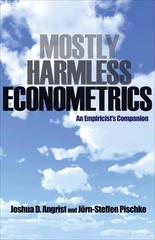Answered step by step
Verified Expert Solution
Question
1 Approved Answer
Which of the following does NOT reduce the problem of underprovision of public goods in the market? Government tax all individuals to provide the goods
- Which of the following does NOT reduce the problem of underprovision of public goods in the market?
- Government tax all individuals to provide the goods and crowding-out is not complete.
- Make donation for public goods be honorable.
- Emphasize the importance of the public goods on poor families to attract altruistic donations.
- Technology or law to charge fees for the private sector that provides public goods
- Simply gives the property right to the individual provide the goods
- What kinds of predictions we can derive from the Tiebout model?
- Other things equal, people will move to the place with better public goods or lower tax rate.
- More choices of local communities, more satisfaction and more similarity within the communities.
- Income redistribution will be unsuccessful.
- Differences in regional attractiveness or peoples preference on the region will be capitalized into house prices.
- Fiscal redistribution (equalization) across regions is not desirable as nobody wants it.
- Which of these statements is/are true?
- When there is asymmetric information, adverse selection always leads to market failure. Therefore, we need government to intervene.
- By offering different packages to people with different risk type, insurance company can induce people to reveal their risk type. Then the asymmetric information problem and thus market failure are solved.
- Social insurance cannot reduce the moral hazard behavior. As a result, optimal social insurance should only partially insures individuals against adverse events.
- Moral hazard behavior is bad for insurance company, but it is often the best choice for individuals being insured.
- Group insurance is accompanied with redistribution from the low risk type to the high risk type in the pool, but it can still be better for the low risk type to choose group insurance over non-group insurance.
- What kinds of the behaviors below can be labelled as moral hazard behavior?
- Cover up bad health pre-condition to get a lower premium of health insurance
- The physicians are more likely to deliver expensive treatment when the patients are covered by generous health insurance.
- Consume more health care because the critical illness insurance () gives a substantial lump-sum compensation when getting serious disease (but no other benefits other than the lump-sum compensation).
- Work less to avoid paying income tax
- Work less to be qualified for welfare program
- Retire earlier to claim social security benefit earlier
- Which of these are TRUE concerning taxation?
- Taxing income leads to deadweight loss because people consume less after some income being taken away.
- Taxing a good that has a negative externality has double dividends.
- Progressive income tax systems tend to be less efficient than proportional income tax systems.
- If the government taxes the consumption of good A and people do not change their consumption of good A, it means the tax on good A has no deadweight loss.
- Sugar is heavily taxed, but people in the Angel city do not pay tax on sugar because they stop consuming sugar. This means that the Angel city avoids the deadweight loss and the tax burden of the sugar tax.
- When tax-benefit linkage exists, deadweight loss is reduced.
- Taxing whom does not matter for both efficiency and tax incidence.
Step by Step Solution
There are 3 Steps involved in it
Step: 1

Get Instant Access to Expert-Tailored Solutions
See step-by-step solutions with expert insights and AI powered tools for academic success
Step: 2

Step: 3

Ace Your Homework with AI
Get the answers you need in no time with our AI-driven, step-by-step assistance
Get Started


